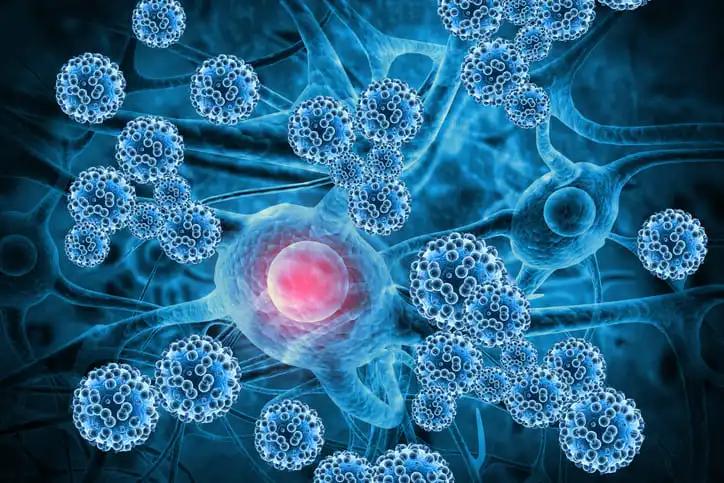KEY TAKEAWAYS
- The phase 2 KarMMa (NCT03361748) trial aimed to confirm the efficacy and safety of ide-cel, a B-cell maturation antigen-directed CAR T-cell therapy, in patients with relapsed and resistant multiple myeloma.
- Enrolled patients had relapsed and resistant myeloma despite receiving at least three prior treatment regimens.
- At a median follow-up of 13.3 months, 73% of the treated patients achieved an overall response, and 33% achieved a complete or improved response.
- Cytokine release syndrome was diagnosed in 84% of patients, with 5% experiencing grade 3 or higher events.
- A significant proportion of treated patients achieved MRD-negative status. However, most patients experienced hematologic toxic effects and grade 3 or 4 CRS.
Idecabtagene vicleucel (ide-cel, also known as bb2121), a B-cell maturation antigen-directed chimeric antigen receptor (CAR) T-cell therapy, has demonstrated clinical activity in patients with relapsed and refractory multiple myeloma with expected CAR T-cell toxic effects. This phase 2 study aimed to confirm the efficacy and safety of ide-cel in patients with relapsed and resistant myeloma. Enrolled patients had disease despite at least three prior regimens comprising a proteasome inhibitor, an immunomodulatory agent, and an anti-CD38 antibody. Patients were administered 150 × 106 to 450 × 106 CAR-positive (CAR+) T cells via ide-cel. The primary endpoint was an overall response (partial response or better); an important secondary endpoint was a complete response or better (including both complete and stringent complete responses).
A total of 128 patients out of 140 received ide-cel. At a median follow-up of 13.3 months, 94 out of 128 patients (73%) had a response, and 42 out of 128 (33%) had a complete or improved response. MRD-negative status (10-5 nucleated cells) was confirmed in 33 patients, comprising 26% of all 128 patients treated and 79% of the 42 patients who achieved a complete or better response. The median time without progression was 8.8 months (95% confidence interval: 5.6 to 11.5). Among the 128 treated patients, neutropenia was observed in 117 (91%) patients, anemia in 89 (70%) patients, and thrombocytopenia in 81 (63%) patients. Among the 107 patients (84%) diagnosed with cytokine release syndrome, 7 (5%) had grade 3 or higher events. Neurotoxic effects manifested in 23 patients (18%) and were of grade 3 in 4 patients (3%); neurotoxic effects of greater severity than grade 3 did not occur. At six months, cellular kinetic analysis validated the presence of CAR+ T cells in 29 of 49 patients (59%) and 4 of 11 patients (36%) after infusion. Ide-cel induced responses in most extensively pretreated patients with refractory and relapsed multiple myeloma; 26% of treated patients achieved MRD-negative status. Most patients experienced hematologic toxic effects and grade 3 or 4 cytokine release syndrome.
Source: https://pubmed.ncbi.nlm.nih.gov/33626253/
Clinical Trial: http://clinicaltrials.gov/show/NCT03361748
Munshi NC, Anderson LD Jr, Shah N, Madduri D, Berdeja J, Lonial S, Raje N, Lin Y, Siegel D, Oriol A, Moreau P, Yakoub-Agha I, Delforge M, Cavo M, Einsele H, Goldschmidt H, Weisel K, Rambaldi A, Reece D, Petrocca F, Massaro M, Connarn JN, Kaiser S, Patel P, Huang L, Campbell TB, Hege K, San-Miguel J. Idecabtagene Vicleucel in Relapsed and Refractory Multiple Myeloma. N Engl J Med. 2021 Feb 25;384(8):705-716. doi: 10.1056/NEJMoa2024850. PMID: 33626253.



